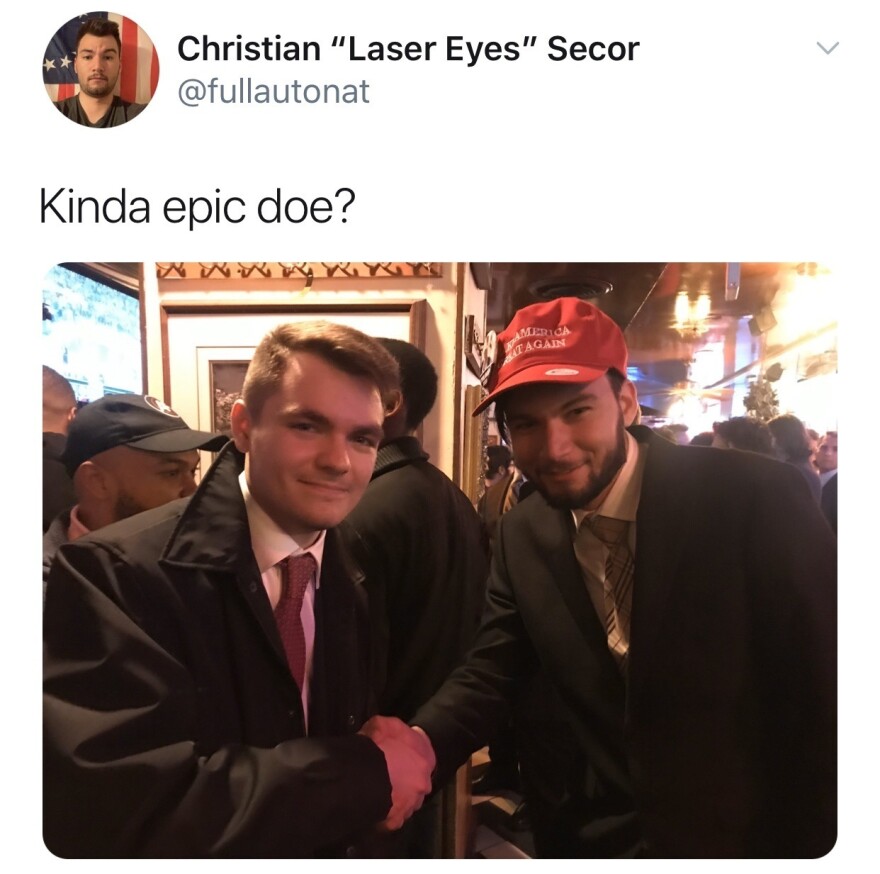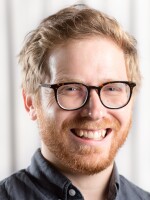On Jan. 6, 2021, Christian Secor, a student at UCLA, broke into the U.S. Capitol along with hundreds of rioters, entered the Senate chamber while carrying the flag of an extremist anti-immigrant and antisemitic movement, and sat in the chair recently vacated by former Vice President Mike Pence.
Not long after, Secor posted on Twitter that Trump supporters should be "proud" of the Capitol riot, in which more than 140 police officers were injured. "One day accomplished more for conservativism than the last 30 years," he wrote.
On Wednesday, the 24-year-old Secor was sentenced to three-and-a-half years in prison. Earlier this year, he pleaded guilty to obstruction of an official proceeding, a felony.
Judge Trevor McFadden, who was nominated to the federal court by former President Donald Trump, said Secor's conduct was, "about as blatant and obstructive as any [he's] seen from that day that didn't include actual violence."
The probation office recommended a decrease in the sentencing guidelines due to Secor accepting responsibility for his actions, and the defense submitted letters in support of Secor's remorse.
However, McFadden told Secor, "I'm not sure I've really seen that from you, sir."
Assistant U.S. Attorney Kimberly Paschall, the prosecutor in the case, emphasized Secor's enthusiasm for guns and his involvement with America First, which the government called an extremist group.
"It is that ideology, coupled with action, that concerns the government," Paschall said.
She also said that Secor's specific presence in House Speaker Nancy Pelosi's office, and in Vice President Mike Pence's chair on the Senate Floor, were concerning given his prior comments about civil war.
That context, Paschall said, "makes him more culpable in the eyes of the government than someone who walked in, saw the rotunda, and left."
The Department of Justice had asked the court to sentence Secor to just under 5 years in prison.
In addition to storming the Capitol, prosecutors had raised concerns about Secor's large purchases from firearms and tactical gear retailers, a GoPro video in which he wielded an AR-15-style rifle in his room, and his discussion in text messages of conducting "future operations" that were "ultra secret" after Jan. 6.
At his hearing, Secor declined to speak, other than to say that the "operation" referred to in those messages referred to a business idea rather than any violence.
Prosecutors also said that six days after the riot, an associate texted Secor about buying guns: "hey bro do you make any Glocks or AR for sale?"
"Never say anything remotely of that nature on an unsecure [sic] line. We are in a civil war," Secor allegedly responded. "The short answer is no."
Secor also allegedly searched on Google, "can you find a guns owner with serial number."
Secor's attorney, Brandi Harden, told the court that Secor "enjoys the ability to put together guns in a legal way," but that it's not relevant to the Jan. 6, 2021 attack on the Capitol.
She also made clear that Secor did not bring a gun to the Capitol.
"If his plan was to take over, as the government wants you to believe, he could have packed it," Harden said.
Secor had asked for a sentence of two years' probation, with no prison time. His defense attorney noted that he did not commit any violence during the Capitol riot, and argued that his young age weighed in favor of leniency, citing research on the development of the brain's prefrontal cortex into a person's 20s.
"This late development of the prefrontal cortex can explain in part, but not excuse, why Christian may have made the choices he did on January 6," his attorney wrote. "His lack of maturity, along with his lack of judgment, led him to where he is today."
While at UCLA, Secor led a campus group called the America First Bruins - named for the school's mascot, as well as an extremist movement led by a far-right livestreamer named Nick Fuentes.

Fuentes, in the words of DOJ prosecutors, "is a public figure known for making racist statements, celebrating fascism, and promoting white supremacy." He has expressed support for domestic violence against women, and promoted tenets of Holocaust denial. His followers often refer to themselves as "Groypers," a reference to the "Pepe The Frog" meme that became popular on the far-right.
Secor advanced Fuentes' political movement at UCLA, and also made anti-immigrant and antisemitic comments, according to court documents and interviews with other students. In tweets cited by prosecutors, Secor said that fascism "sounds epic" and said while he supported "nationalism," he did not support "extreme Jewish over representation in politically relevant sectors."
After Trump lost the 2020 presidential election, Fuentes helped organize "Stop The Steal" protests, and cheered on the crowd of Trump supporters in Washington, D.C. on Jan. 6. He called it a "glorious day" and said "the Capitol Siege was f***ing awesome." The congressional committee investigating the attack on the Capitol issued a subpoena to Fuentes for documents and testimony. Fuentes has not been criminally charged in connection with the Capitol riot.
In addition to Secor, federal prosecutors have brought charges on a handful of other followers of Fuentes who allegedly breached the Capitol.
UCLA student Oona Flood raised concerns about Secor and his extreme rhetoric on campus before he participated in the Capitol riot. Reached by phone on Wednesday after Secor's sentencing, Flood said they hoped the prison sentence sends a message to far-right students that, "just because you're young, you can't get away with everything."
Flood, however, warned that extremist rhetoric at UCLA has not abated since the Capitol riot and the charges against Secor.
"They're just as radical as before," said Flood, who now leads UCLA's college Democrats.
Despite Flood's reservations about the criminal justice system, they said, "at least there's been some semblance of justice."
Copyright 2022 NPR. To see more, visit https://www.npr.org.





